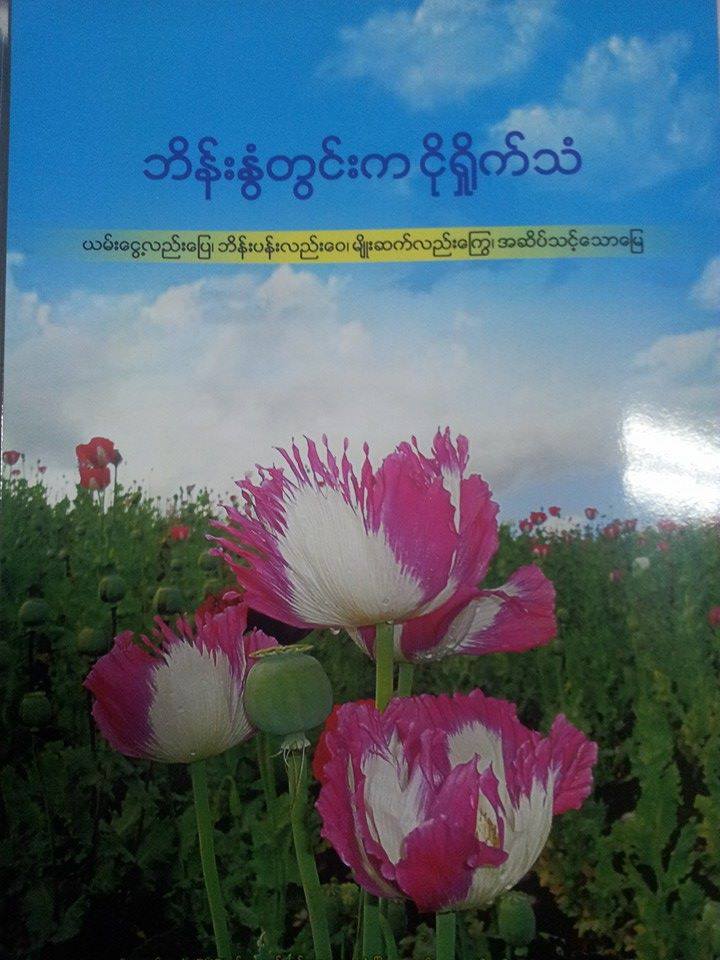Posts Tagged ‘Pa-O Youth Organization’ (6 found)
“ဘိန္းႏြံတြင္းက ငိုရႈိက္သံ” အစီရင္ခံစာ
၁၈၈၆ တြင္ အထက္ျမန္မာျပည္ကို အဂၤလိပ္တို႔ သိမ္းပိုက္ၿပီးေနာက္ တရုတ္-ျမန္မာနယ္စပ္ တေလ်ာက္တြင္ အေရွ႕ေတာင္အာရွ၌ ဘိန္းစိုက္ပ်ဳိးထုတ္လုပ္မႈ စတင္ ထြန္းကား ရာေဒသ ျဖစ္လာခဲ့ သည္။ ျမန္မာႏိုင္ငံသည္ ၁၉၄၈ ခုႏွစ္တြင္ အဂၤလိပ္တို႔ ထံမွ လြတ္လပ္ေရး ရရွိခဲ့ေသာ္လည္း ရွမ္းျပည္နယ္မွ ဘိန္းစိုက္ပ်ဳိး ထုတ္လုပ္ မႈသည္ အနာဂတ္တြင္ ျပႆနာမ်ားျဖစ္ထြန္းမႈ ပိုမိုႀကီးထြား လာေစသည့္ မ်ဳိးေစ့မ်ားကို ခ်ထားၿပီး ျဖစ္ေနသည္။ […]
• • •ဘိန္းႏံြတြင္းမွ ျပည္သူတို႔၏ ငိုရႈိက္သံမ်ားကို တာ၀န္ရွိသူတိုင္းက ၾကားသိကယ္တင္ႏိုင္ရန္
၂၀၀၅ မတိုင္ခင္တြင္ တိုင္းရင္းသား လက္နက္ကိုင္အဖဲြ႔ (၁၇)ဖဲြ႔ႏွင့္ ႏိုင္ငံေတာ္ အစိုးရအၾကား အပစ္အခတ္ရပ္စဲေရး ရယူခဲ့ ၾကေသာ္လည္း န၀တ၊ နအဖ အစိုးရ သည္ ႏိုင္ငံေရးျပႆနာကို ႏိုင္ငံေရးနည္းျဖင့္ မေျဖရွင္းသည့္အျပင္ ျမန္မာ-တရုတ္ နယ္စပ္ တစ္ေလွ်ာက္တြင္ စီးပြားျဖစ္ ဘိန္းစိုက္ပ်ဳိး ထုတ္လုပ္သည္ကို လွစ္လွ်ဴရႈထား ခဲ့ သျဖင့္ ျမန္မာႏိုင္ငံ၏ အေထြေထြ အၾကပ္အတည္း ျပႆနာမ်ားကို သက္ဆိုးရွည္ေစ ခဲ့သည္ဟု ယေန႔ ထုတ္ေ၀သည့္ အစီရင္ခံစာတြင္ ေဖာ္ျပထားပါသည္။ […]
• • •Poison Clouds: Lessons from Burma’s Largest Coal Mine Project at Tigyit
The report introduces the coal mine concept at early part followed by detail facts about Tigyi Coal Project. It then explains the on-going human rights abuses and breach of national as the projected was being implemented and how the area is effected by the mining environmentally threatening careers and lives of the residents […]
• • •Burma’s Largest Coal Project Poisons Communities Near Famed Inle Lake
Burma’s largest coal mine and coal-fired power plant, located thirteen miles from Burma’s famous Inle Lake in Shan State, are polluting waterways, threatening the health of local populations, and displacing villages, according to a report released today […]
• • •Robbing the Future: Russian-backed Mining Project Threatens Pa-O Communities in Shan State, Burma
This report details the development of the Burma’s second largest iron deposit by the military regime and a Russian state-owned company. The project will destroy the homes of 7,000 villagers and affect another 35,000 people. […]
• • •Holding Our Ground: Land Confiscation in Arakan & Mon States, and Pa-O Area of Southern Shan State
A report outlining land confiscation in three areas of the country – Arakan State, Mon State and the Pa-O Area of southern Shan State – where the brutal treatment of civilians at the hand of the military junta has been under documented.
• • •









 All posts
All posts